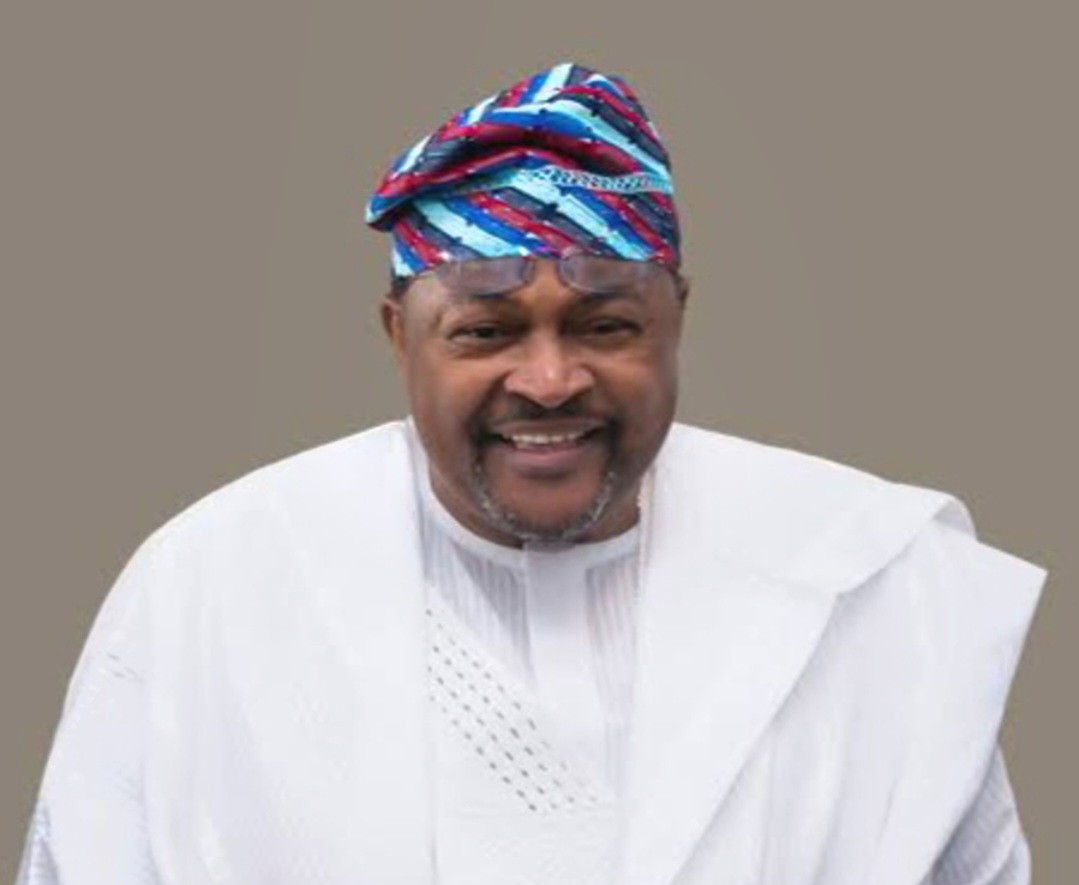By Lanre Alfred
I remember the first time I held a Glo SIM card. It was green, small, and unimposing, yet it felt like I was holding the future in my palm. Twenty-two years on, that feeling has not dimmed. Globacom has grown from a daring start-up to a continental behemoth, and I, like millions of Nigerians, have journeyed with it, a co-traveller on its path of grace, resilience, and triumph.
This year, Glo turns 22. Twenty-two years of threading wires across continents and weaving invisible webs of connection. Twenty-two years of giving voice to the voiceless, hope to the hopeless, and wings to dreams once trapped in silence. Twenty-two years of building bridges across class, culture, and geography. And when I think of it all, I cannot help but feel that Globacom is less a company and more a parable of Nigeria’s highest possibilities.
Two years after GSM came to Nigeria, telephony was still the exclusive privilege of the rich. SIM cards sold for between ₦20,000 and ₦25,000, a price so steep it turned the mobile phone into a status symbol instead of a necessity. Then came Globacom in 2003, like a prophet of inclusion. With the audacity of a dreamer and the heart of a philanthropist, Dr. Mike Adenuga tore down the wall between the haves and have-nots.
I remember the shockwaves: SIM prices collapsed to ₦500, then ₦100, and then, almost miraculously, they were given away free. The phone, once a luxury, became the people’s tool. Farmers could call buyers. Students could reach home. Small traders could bargain across cities. With one bold stroke, Glo democratised access to communication and rewrote the Nigerian story.
And as if that was not enough, when rivals claimed Per Second Billing was impossible until five years down the line, Glo brought it on Day One. Suddenly, we paid only for what we used. I still recall the relief of cutting calls short without the tyranny of the one-minute billing system. It was as though a heavy yoke had been lifted from the necks of ordinary Nigerians.
Every empire has its signature. For Globacom, it is innovation. From 2.5G GPRS to 3G, then 4G/LTE, the company kept Nigeria surfing on the crest of global telecommunications waves. For the first time, we could share pictures, send videos, and stream music without borders.
The Glo 1 submarine cable still stands in my mind as one of its most audacious feats. Launched in 2010, this 9,800-kilometre artery stretched from London to Lagos, from Lisbon to the Gulf of Guinea, pumping lifeblood data into West Africa. No African company had dared such a project before, but Adenuga’s Glo did. It was more than an infrastructure; it was a declaration that Africa would no longer rent its future from others.
I often think of Glo 1 as a digital umbilical cord, connecting Africa not just to Europe but to the world’s beating heart of information, commerce, and knowledge. Today, it powers sectors from oil and gas to banking, health to education, placing Nigeria squarely on the digital map.
For all its technological strides, Globacom never lost sight of humanity. At its core, Glo is powered by the philosophy that profit must breathe with compassion. I have watched the company integrate its interests with the aspirations of ordinary people, creating initiatives that help subscribers achieve personal goals.
From pioneering mobile banking and vehicle tracking to launching prepaid roaming and in-flight roaming, Globacom transformed convenience into a national habit. And through its Payment Service Bank, MoneyMaster PSB, it deepened financial inclusion, carrying banking to the last mile where traditional banks fear to tread.
But perhaps its greatest gift has been its people-centred promotions.
Who can forget the Festival of Joy? Brand-new houses, cars, generators, sewing machines, fans, millions worth of life-changing rewards handed back to loyal customers. These were not just promos; they were acts of empowerment, roses of gratitude handed back to the very hands that kept Glo alive.
Telecommunications may be Glo’s business, but culture and sports have always been its heartbeat. I have sat in theatres, stadiums, and festival grounds, watching as Globacom lit up stages and fields with sponsorships that turned entertainment into a national religion.
It was Glo that brought Nollywood stars back into relevance as brand ambassadors, restoring dignity and wealth to veteran actors who had been forgotten. It was Glo that gave musicians and comedians platforms to showcase their gifts at Laffta Fest, Mega Music Tour, and Slide ‘n’ Bounce. It was Glo that transformed ordinary dancers into stars with the Battle of the Year Nigeria.
And then football. Good, old football! Glo became synonymous with the game, sponsoring the CAF African Footballer of the Year Awards, supporting the Super Eagles, and standing with the Supporters’ Club across continents. For years, the Premier League carried the glow of Glo sponsorship, and countless young talents rose because the company dared to believe in their potential.
Globacom also stamped its mark on literature and culture, supporting the Wole Soyinka Prize for Literature and immortalising the Nobel laureate with the Evening with WS series. Through sponsorship of Ojude Oba, Ofala, Lisabi, and other festivals, it kept Nigeria’s cultural soul alive, ensuring that tradition could dance with modernity on the same stage.
And then there is the Mike Adenuga Centre, the architectural jewel gifted to Alliance Française in Lagos. I have walked its halls, seen its walls alive with art and music, and I know that Adenuga built it as more than a centre — he built it as a bridge between Africa and the world.
There is no gainsaying Globacom has asserted its might as both a corporate giant and social engineer. Its strategy has always been to engage Nigerians at their most intimate moments, when they are resting, commuting, or dreaming. Through smart advertising, community initiatives, and social responsibility projects, Glo became a companion, not an intruder.
I have seen how it empowered unemployed youths through call-centre partnerships, how it offered free lines to government MDAs to drive efficiency, and how it reached underserved communities with connectivity that gave them a sense of belonging in the national story.
Everywhere I turn, I see Glo’s invisible fingerprints: in friendships sustained across cities, in businesses thriving on mobile data, in families kept together through midnight calls. It has become a status marker, yes, but more importantly, it has become a lifeline, a reminder that connection is the soul of modern life.
Globacom’s DNA is empowerment. From sports to entertainment, from culture to commerce, it has raised champions and built empires. I have met artistes who rose from obscurity to global fame because Glo put them on billboards. I have seen footballers take their first international flights courtesy of Glo sponsorship. I have seen comedians who once struggled for rent now commanding arenas, their laughter amplified by Glo’s platforms.
For 22 years, the company has been a midwife of destiny. And like the hand that gives roses, it carries the fragrance of empowerment wherever it goes. That fragrance lingers, in the economy it boosts, the cultures it preserves, and the dreams it nurtures.
As Glo celebrates its 22nd anniversary, I look back on its journey and I see a parable of Nigeria itself. The company faced storms, policy challenges, competitive wars, economic downturns, yet it refused to bow. It dared, it innovated, it endured. And today, it stands as Africa’s boldest, most indigenous telecom giant.
From demystifying SIM cards to pioneering billing systems, from building submarine cables to sponsoring Africa’s brightest stars, Globacom has become a green philharmonic, an opus of resilience, generosity, and towering audacity.
And at its helm remains Dr. Mike Adenuga, the quiet billionaire whose vision forged fibre optics with human dreams. He has built a company, an inspiring legacy, and a monument to what happens when enterprise is built with empathy. Honestly, it takes courage to be Dr Mike Adenuga Jnr. You have to travel aeons back perhaps to encounter a charitable heart like his. Much of his gestures stem from his ability to feel, visualise, and appreciate the miseries of society’s underprivileged and build livable lives for them from the ground up.
His bank of love is never bankrupt. If Adenuga had his way, he would banish extreme poverty from the world. When he gives, he spends himself with it. For the him to give is interred in his innate nature, thus a single act of kindness is like a drop of oil on a patch of dry skin—seeping, spreading, and affecting more than the original need.
If the Chairman of Globacom were crowned the richest man in the world today, it wouldn’t matter to him. He had never been a sucker for worldly and ephemeral titles. Thus he’d keep doling out his fortune to nourish dreams and flesh the hopes of the starving. If you ask him, he would tell you that he has not lived in a day, until he has done something for someone who can never repay him. Thus while some billionaires toss satellites into orbit and strive to harness the sun, Adenuga commits his fortune to nobler, simpler objectives, like raising society’s underprivileged from privation to surplus.
Over increasingly large swathes of Africa’s air space and beyond, the Glo network springs untrammelled by the constraints of commerce. Thanks to Adenuga, the average African now shares boundless talk time and access to data in the same air space as the super-rich.

In Adenuga’s world, enterprise becomes magic; the fondling of ambition from a delicate prod into a feral grope. A grope against the odds. Against adversaries and unforgiving fate. Only a titan like Adenuga could brave these challenges and carve from it all, an Eden.
In homage to his humanity and relentless strides at rewriting the African telecommunications narrative, the French government, in 2017, invested him the highest French decoration and the most famous in the world.
But unlike the proverbial warrior who lives to sing the song of his deeds, Adenuga remains impressively humble and immune to conceit. The recipient of the Grand Commander of the Order of the Niger (GCON), one of Nigeria’s highest national honours, treads a rare path to acclaim thus attracting honour in torrents, from home and abroad.
In this age of self-promotion, Adenuga simply lets his achievements do the talking for him. That’s quite big and instructive in a billionaire magnate; he is all about sincerity and humility. Despite his inestimable progress and achievements in the telecoms sector, understands that being a star is not up to him: the people will confirm his dazzle.
I write this as a witness. I have lived through Glo’s 22 years, benefited from its disruptions, marvelled at its audacity, and cherished its generosity. When I dial a number, stream a song, send a file, or watch a football game, I am part of its living story.
So, I raise a metaphorical glass to Glo at 22, to the network that gave us voice, to the giant that carries our conversations on its shoulders, to the green flame that refuses to dim.
May the next 22 years be as fragrant as the roses it has given, as bold as the cables it has laid, and as generous as the dreams it continues to awaken.




